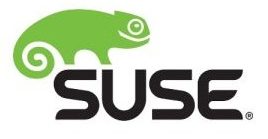2 mins read
SUSE Cloud Application Platform Certified by Cloud Foundry Foundation, Brings Advanced Cloud Foundry Productivity to Modern Kubernetes Infrastructure

February 19, 2025
Copyright 2023, IT Voice Media Pvt. Ltd.
All Rights Reserved

 SUSE Cloud Application Platform has been designated a Certified Cloud Foundry distribution by the Cloud Foundry Foundation. The newly certified platform brings the advanced productivity of the Cloud Foundry model to Kubernetes, which is rapidly becoming the de facto standard for modern container infrastructure. One of two certified Cloud Foundry software offerings, SUSE Cloud Application Platform is built with SUSE Linux Enterprise and backed directly by SUSE®, and it is the only distribution delivered via 100 percent open source software. It lets organizations leverage their investment in Kubernetes infrastructure and expertise to ease Cloud Foundry implementation and fast-track DevOps and modern application delivery initiatives.
SUSE Cloud Application Platform has been designated a Certified Cloud Foundry distribution by the Cloud Foundry Foundation. The newly certified platform brings the advanced productivity of the Cloud Foundry model to Kubernetes, which is rapidly becoming the de facto standard for modern container infrastructure. One of two certified Cloud Foundry software offerings, SUSE Cloud Application Platform is built with SUSE Linux Enterprise and backed directly by SUSE®, and it is the only distribution delivered via 100 percent open source software. It lets organizations leverage their investment in Kubernetes infrastructure and expertise to ease Cloud Foundry implementation and fast-track DevOps and modern application delivery initiatives.